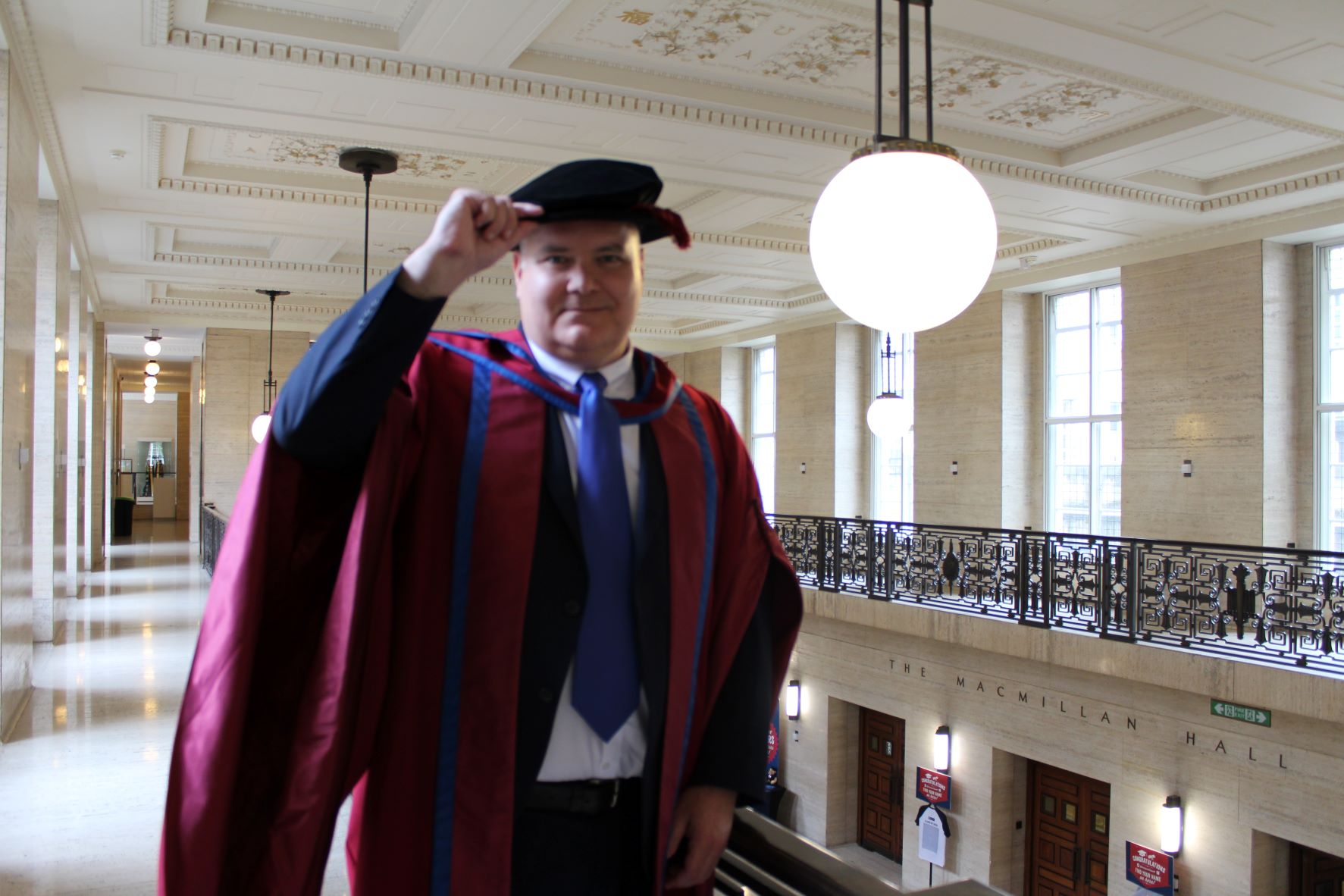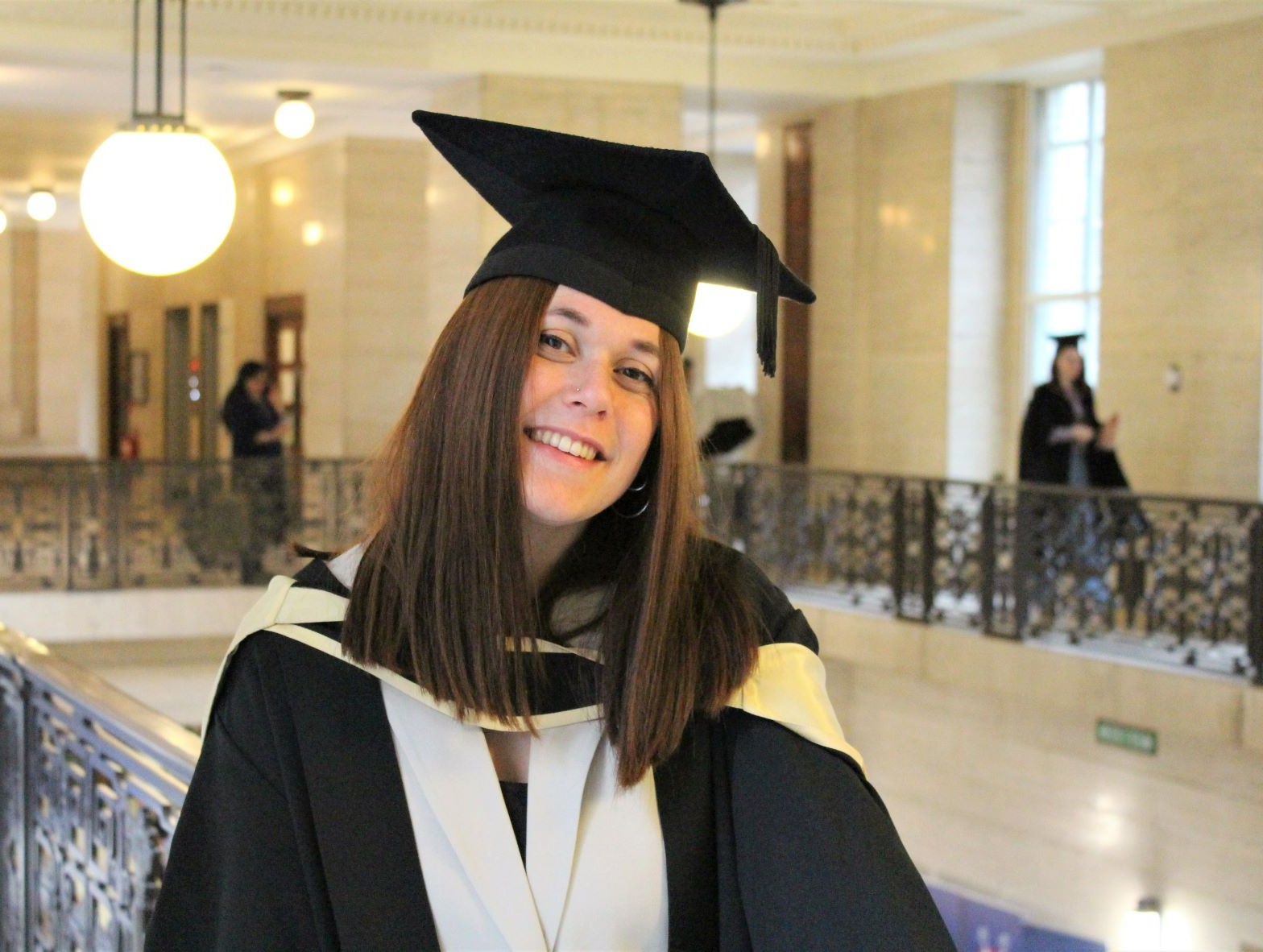Cobus Van Rooyen has completed three courses at Birkbeck and has credited the College community with exposing him to a “vast amount of knowledge and experience”; and helping him to achieve chartered status. Today, he graduated with a PhD in Geography. This is his story.
I moved to the UK from Cape Town, South Africa in 2000 and considered undertaking further studies at a UK university.
Given the fact that it’s very expensive to study full-time without an income, I was really happy to learn that Birkbeck offered part-time courses. This allowed me to be employed while undertaking my studies.
The best part about studying was the fact that my peers were also in full-time employment and had a vast amount of knowledge and experience in our field of study to share.
During my PhD research I also had great exposure to leading scholars and found much inspiration from their work. The part-time PhD was immensely difficult but I am very grateful for my supervisor’s (Dr Joana Barros) support throughout this journey. I definitely couldn’t have done it without her.
Although the PhD process was less demanding than the MSc in terms of structure and short timeframes, it had its own challenges.
Firstly, undertaking research in isolation is quite challenging and much self-motivation is required. As a PhD researcher I also had to be very disciplined in how I planned my time to ensure I kept to the deadlines and targets I set for myself.
I was offered a studentship for the first five years of my research.
Beyond that, my research was also made quite affordable through the payment plan Birkbeck offers, whereby fees can be paid in instalments.
While studying part-time, I was in full-time employment as a GIS consultant in multi-disciplinary engineering.
Eventually, my studies helped me achieve chartership and I currently function as Fellow and Chartered Geographer (GIS) (obtained from the Royal Geographical Society) and Chartered Scientist (obtained from the UK Science Council).
What was most memorable from my time at Birkbeck was the opportunities it presented me with.
I had the opportunity to present my research at the Association of American Geographers (AAG) conference in Las Vegas and also to visit MIT for advice on the urban simulation model I was developing. I was also asked to co-author a textbook chapter with a professor from another university.
I would like to encourage every person, thinking of studying at Birkbeck, to most certainly do so.
I am very relieved that I was able to complete my research successfully but I will really miss Birkbeck immensely. Birkbeck contributed greatly to both my personal and career growth and I will always be grateful for the opportunity I had to further my studies there.
Further information:
Study Geography at Birkbeck
Read more about Birkbeck’s international student community
Find out more about studying for a PhD at Birkbeck
Research at Birkbeck

